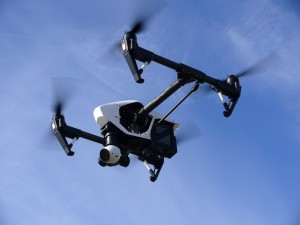News: New Drone Battery
Professor Gyeong Man Choi along with his research team at the Pohang University of Science and Technology (POSTECH) have developed a fuel cell that they hope will increase the battery life for drones.
Current drone battery cells do not last very long, with flight times of less than an hour between charges.
The team intended their new cell, a miniaturized solid oxide fuel cell (SOFC), to be a replacement to the lithium-ion batteries commonly used in electronic devices such as smartphones and laptops as well as drones.
The SOFC, referred to as a third-generation fuel cell, has been intensively studied since it has a simple structure and no problems with corrosion or loss of the electrolyte. This fuel cell converts hydrogen into electricity by oxygen-ion migration to fuel electrode through an oxide electrolyte. Typically, silicon has been used after lithography and etching as a supporting component of small oxide fuel cells. This design, however, has shown rapid degradation or poor durability due to thermal-expansion mismatch with the electrolyte, and thus, it cannot be used in actual devices that require fast On/Off.
The research team developed, for the first time in the world, a new technology that combines porous stainless steel, which is thermally and mechanically strong and highly stable to oxidation/reduction reactions, with thin-film electrolyte and electrodes of minimal heat capacity. Performance and durability were increased simultaneously. In addition, the fuel cells are made by a combination of tape casting-lamination-cofiring (TLC) techniques that are commercially viable for large scale SOFC.
The fuel cells exhibited a high power density of ~ 560 mW cm-2 at 550 oC. The research team expects this fuel cell may be suitable for portable electronic devices such as smartphones, laptops, and drones that require high power-density and quick on/off. They also expect to develop large and inexpensive fuel cells for a power source of next-generation automotive.
With this fuel cell, drones can fly more than one hour, and the team expects to have smartphones that charge only once a week.
This research was supported by the Basic Science Research Program through the National Research Foundation of Korea (NRF) funded by the Ministry of Education, Science and Technology.
The results of their study have been published in Scientific Reports, March edition.
Harding Energy can design and manufacture batteries for drones. Call us for details.
To read the original full article, please click here.

Leave a Comment